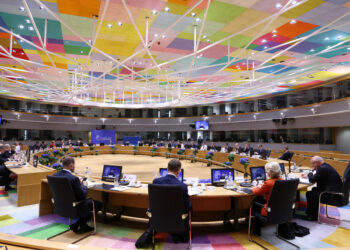Brussels – The International Criminal Court (ICC) has issued an arrest warrant against the Israeli Prime Minister, Benjamin Netanyahu, and his former Defence Minister, Yoav Gallant. The charges brought by the chief prosecutor, Kharim Khan, were confirmed for both: crimes against humanity and war crimes committed in the Gaza Strip after Oct. 7, 2023, just like for Vladimir Putin, on whom an arrest warrant has been pending since March 2023. An injunction that the 123 countries that recognize the ICC must comply with, including—as EU High Representative for Foreign Affairs Josep Borrell reminded—the 27 states of the European Union.
When Prosecutor Khan sought the issuance of the arrest warrant in May, Tel Aviv filed several appeals. However, the Hague-based court rejected them and upheld the charges. Karim Khan had also indicted three top Hamas leaders, Yahya Sinwar, Mohammed Deif and Ismail Haniyeh. The Israeli army has since killed all three, although the court still issued an arrest warrant for Deif because it could not verify his death.
Netanyahu and Gallant are held accountable for starving the Palestinian civilian population as a method of warfare, intentionally causing “great suffering, serious bodily or health injury or cruel treatment,” and “directing intentional attacks against a civilian population.” According to the court, the premier and former defence minister—torpedoed by Netanyahu in early November because he wanted to impose military conscription on ultra-Orthodox Jews—had measures at their disposal to prevent or avoid crimes from being committed but failed to do so.
In essence, it is now up to the countries adhering to the Rome Statute—the founding of the ICC—to decide whether to implement arrest warrants, should Netanyahu or Gallant set foot on their national territories, arresting them and handing them over to the court. Only then can the court set up a trial. Israel, which does not recognize the authority of the International Court, will certainly not do so, nor will their privileged partner, the United States, which has never signed the Rome Statute. Moreover, it is not certain that the ICC member countries will decide to fulfil their obligations, as in September, when Putin visited Mongolia without consequences.
The EU High Representative for Foreign Affairs, Josep Borrell, spoke on the issue at a press conference with Jordan’s foreign minister in Amman. “It is not a political decision, but the decision of a court, the International Court of Justice, and the decisions of the courts must be respected and applied,” he said firmly. For Borrell, “There is no peace without justice, and there is no justice without accountability.” The EU diplomacy chief’s indication is clear: The Hague decision “is binding on all states that are members of the Court, which includes all members of the European Union, who are bound to implement it.”
While Borrell’s words might seem obvious, the reality is that the arrest warrant issued by the ICC risks embarrassing European institutions, which, on the one hand, continue to stand as protectors of international law and its multilateral bodies, but on the other, never even considered suspending the firm partnership that binds Brussels and Tel Aviv. Not even in the face of proceedings at the ICC and the International Court of Justice because, beyond the obligation to capture Netanyahu and Gallant on their territory, the warrant implies recognition of the two Israeli leaders as major criminals on a par with Putin precisely, with whom the European Union has cut all ties. For now, beyond Borrell’s comment, no reaction filters from Brussels, but the risk is to lend the flank once again to accusations of double standards between Ukraine and the Middle East.
English version by the Translation Service of Withub







